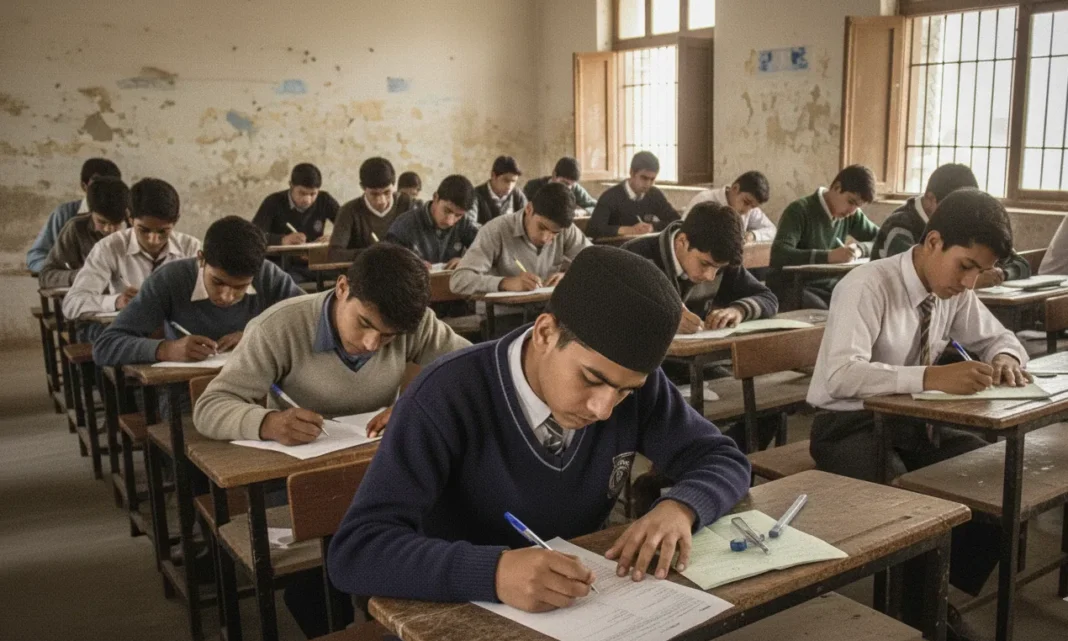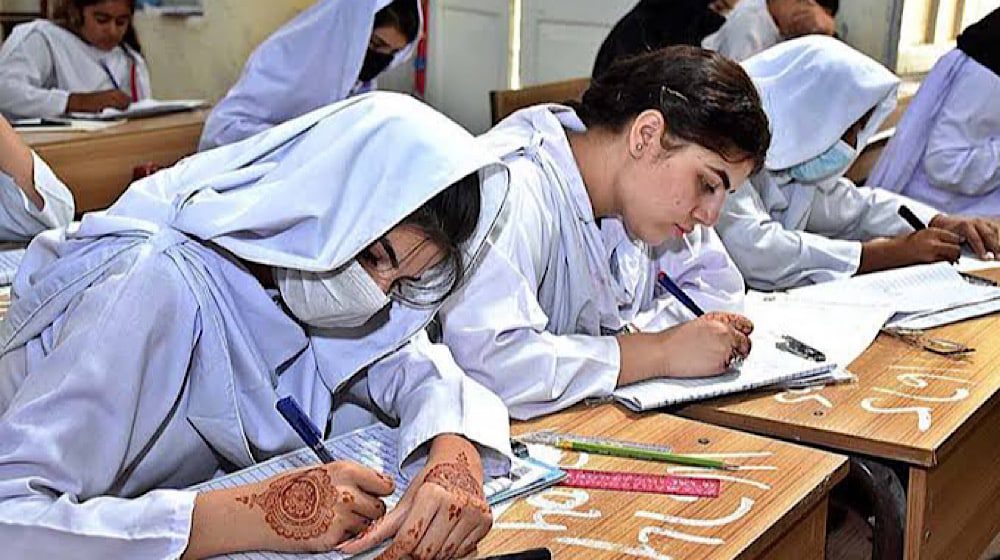By formally announcing the exam schedule for classes 1 through 7 in 2026 the Punjab Education Department has taken a significant step toward academic reform. This choice is a component of a brand new all encompassing academic plan intended to modernize and reorganize education in all of the province public schools.
The government dedication to improved planning and preparation is demonstrated by the early announcement which gives teachers or students and parents enough time to adjust the new academic calendar and curriculum. According to the notification the annual exams for class 1 to 7 will take place from March 10 to March 22, 2026.
On March 31, 2026 the results will be made public. In addition to ensuring that schools can plan learning activities more effectively throughout the year this timeline is meant to provide clarity and lessen uncertainty. The new academic plan focuses on exams and also on updated teaching methods or improved textbooks and several policies aimed at solving long standing educational challenges in Punjab.
A Structured Approach to Academic Improvement
The confirmation of the exam schedule 2026 is not an isolated decision. It is accompanied by key educational reforms including a revised admission policy a new academic calendar and updates to the curriculum being taught in schools. The Punjab Education Department has acknowledged that classroom learning needs consistent improvement especially with changing global education standards.
With these modifications the department hopes to enhance instruction, close learning gaps and give Punjabi students access to a more organized learning environment. The updated academic plan ensures that schools follow a regular and structured timetable for assessments, instructional activities, holidays, student engagement events and parent teacher meeting.
This clarity is expected to increase accountability and transparency throughout the educational system. As parents become more conscious of their children academic progress throughout the year teachers can now confidently plan their annual teaching schedules.
Updated Textbooks and Curriculum Changes for 2026
One of the key components of the new academic plan is the new textbooks for the next school year. According to the Punjab Education Department, 29 revised textbooks for grades six through matriculation will be published in December 2025. In order to meet the demands of education and modern teaching methods, these textbooks are being updated.
They are expected to improve the overall quality of content, remove outdated information and encourage competency based learning. The department has concentrated on creating textbooks that are simpler for students to comprehend. With better exercises, examples and illustrations the new layouts will deliver lessons in a more simplified and interesting way. The significance of improving literacy and numeracy abilities at the primary level has been underlined by subject matter experts.
Due to irregular education, disruptions caused by the pandemic and social issues many young students in Punjab have had difficulty with basic reading and math. With more precise learning objectives and instructional strategies that assist students who require extra support the updated curriculum seeks to directly address this problem.
The world is rapidly evolving and modern education must prepare students for future challenges. By including digital understanding, problem solving, emotional development and real world decision making skills the Education Department hopes to produce well rounded students who are confident, capable and ready for higher studies and future careers.
New Academic Year Begins April 1, 2026
The new academic session for all public schools in Punjab will officially begin on 1 April 2026. To support smooth transition into the new school year Punjab government will start distributing free textbooks to students from April. The timely distribution of free books has always been a strong support system for millions of children in Punjab especially those from low income families who struggle to afford educational materials.
Early textbook printing and distribution according to education officers will lessen delays that have historically hampered classroom instruction. Students frequently fall behind in their studies when textbooks arrive late making it difficult for teachers to plan lessons effectively.
The government intends to establish robust and organized environment in every classroom by guaranteeing that educational resources are accessible from the first week of the academic year. Additionally comprehensive academic calendars detailing holidays, tests, parent teacher conferences, extracurricular activities and learning objectives for the year will be sent to schools.
Punjab’s Learning Crisis Deepens
Despite the encouraging developments associated with the new academic plan and exam schedule for 2026. Punjab Education Department has voiced serious concerns about the province worsening learning crisis. According to reports more than 28 million kids missed school in 2025. Current estimates indicate that this number could exceed 30 million by 2026 if immediate action is not taken.
A significant national issue is indicated by the rising number of children who are not attending school. Many families are still struggling financially and are compelled to put survival ahead of education. Particularly in rural and suburban areas children from lower income households are frequently forced into the workforce at a young age.
Thousands of children are consequently losing out on their constitutional right to an education and the chance to create a better future. With many schools reporting declining student enrollment and attendance the dropout rate has grown to be a major problem. Pakistan runs the risk of increasing the educational divide between affluent and disadvantaged groups in the absence of sufficient assistance.
Declining Enrollment and Gender Disparities
One of the greatest concerns highlighted in the academic plan is the increasing dropout rate among girls. According to education officials many girls from rural districts are leaving school due to financial pressure, early marriages, limited transport options, cultural restrictions and lack of supportive school environments.
As fewer girls continue their studies into higher classes the gender gap in education is becoming wider and more alarming. Child labor has also contributed significantly to the declining enrollment rate. Many underage children are working in shops, restaurants, workshops, small factories and informal sectors instead of attending school.
Education officials have emphasized the need for community awareness campaigns that encourage families to keep their children in school as well as stricter enforcement of child labor laws. Enhancing school infrastructure is also important. Many public schools lack adequate drinking water, boundary walls, security and sanitary facilities.
These challenges discourage parents from sending their children, especially girls to school regularly. The government has acknowledged the critical need to upgrade school facilities in order to create a welcoming, safe, and effective learning environment.
Government Initiatives and Future Plans
For the 2026 school year the Punjab Education Department has created a number of new initiatives to address these problems and enhance learning outcomes. These plans are centered on enhancing learning in the early grades. The department aims to create stronger academic foundations that lower failure rates and student frustration by enhancing literacy and numeracy in early classes.
Modern teaching techniques that emphasize comprehension, practical application, and student engagement will be added to teacher training programs. Increasing school enrollment will be greatly aided by community involvement. In order to increase awareness of the importance of education, the department intends to collaborate closely with social organizations, neighborhood committees, and parents.
Schools will also receive improved infrastructure, including new classrooms, sanitation facilities and access to clean water. To support children from low income families the government is considering expanding scholarships, transportation support and academic materials. These steps are designed to reduce the financial burden on families and encourage children to stay in school rather than enter the workforce at an early age.
About Parhlo Pakistan
Parhlo Pakistan is a dedicated online educational platform focused on supporting the academic needs of students, parents, and teachers across the country. The website provides reliable educational news, past papers, study materials, career guidance, and exam updates that help students stay informed and prepared for their academic journey. Parhlo Pakistan continues to serve as a trusted learning companion for students in Punjab and beyond.
A Hopeful Step Toward a Stronger Future
The Punjab Education Department’s confirmation of the exam schedule 2026, combined with curriculum updates and a new school calendar, is a positive move toward rebuilding the education system. While the challenges remain serious, the new academic plan reflects a commitment to long-term improvement.
Millions of children in Punjab require stronger support in the classroom but also at home and within their communities. With consistent government investment, effective implementation, and support from parents and society, these reforms can make a meaningful difference.
If successful, the new academic plan has the potential to improve learning outcomes, strengthen classroom environments, and give children the opportunity to build a brighter future. The journey ahead is difficult, but with determination, collaboration, and focus, Punjab can create an educational model that supports every child and unlocks their full potential.




